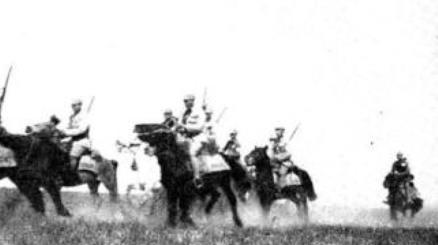After the Xinhai Revolution, the Qing Dynasty was overthrown, and Chinese history entered an unprecedented page, but to be said, the revolution was still not smooth sailing, there were too many obstacles, after the first cooperation between the Kuomintang and the Communist Party in 1924, the situation of the Great Revolution was once high, but unfortunately, after Chiang Kai-shek's April 12 counter-revolutionary coup, the revolution suddenly fell into a low tide, in order to save the fate of the prestige of the Chinese revolution. A chinese communist-led contingent launched an uprising in Nanchang.

The uprising still has certain limitations from our current historical perspective, but as a glorious page in the history of the founding of the Communist Party of China, it was later recorded in the annals of history, and the Nanchang Uprising participated in more than 20,000 troops, and after the victory of the uprising, more than 3,000 people completely annihilated and defended the city, and later this unit followed the name of the National Revolutionary Army and was renamed the Second Front, including the original 11th Army, the 20th Army, and the third army, which was the 9th Army.
The Ninth Army was composed of the Nanchang Public Security Bureau Security Corps as a unit, plus part of the Officer Education Corps of the 3rd Army of the Fifth Front, in fact, the number of this unit was very small, after the reorganization, Zhu De was appointed as the deputy commander, Zhu Kejing was appointed as the party representative, in fact, at the beginning of the reorganization of the troops, the Ninth Army had a commander, but it was not there due to injury and illness. And this person is Wei Pestle, a native of Guizhou, born in 1883.
Wei Pestle's seniority in participating in the revolution was very old, and when he was a child, he was often bullied because of his identity as a minority, and under the righteous indignation, Wei Pestle threw his pen from Rong, and later was admitted to the Yunnan Daowu Hall, and Became a classmate of Zhu De, so the relationship between the two was not reversed, and later participated in the War of Protector of the Law, because he always supported Sun Yat-sen and insisted on revolutionary struggle, so he was highly respected.
In fact, before the Nanchang Uprising, Wei Pestle had actually been influenced by Comrade Zhu Kejing, who was working in the army, to oppose Chiang Kai-shek's dictatorial rule, so after the Nanchang Uprising, after the establishment of the Ninth Army, Wei Pestle was appointed as the commander of the Ninth Army, but due to the troubles of injuries and illnesses at that time, Wei Pestle did not go to his post, but stayed in Jiujiang to continue to recuperate, but in fact, most of the officer education corps of the 3rd Army that launched the uprising came from his command.
Wei Pestle was later sent by Chiang Kai-shek to Jiangxi to suppress the Communists, has always been treated negatively, so he was later dismissed, although during the War of Resistance Against Japanese Aggression was reused many times, but in fact, he was engaged in insignificant work, but even so, Wei Pestle still engaged in a lot of useful things, especially after returning to Yunnan, cultivating various military talents, because of his clean and upright style, deeply welcomed and loved by soldiers at all levels, after the founding of New China, he was hired as a counselor of the Yunnan Provincial People's Government, and died of illness in 1951 at the age of 68.